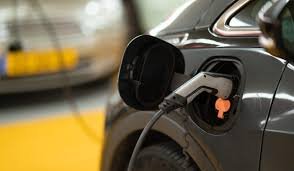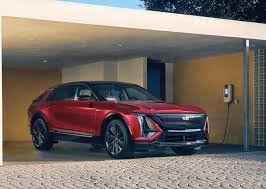As the world moves towards cleaner, more sustainable transportation options, comparing electric and hybrid cars are becoming increasingly popular. Both types of vehicles offer significant environmental benefits, but they operate in different ways. If you’re considering switching to an electric or hybrid vehicle, it’s important to understand the differences between the two. In this post, we’ll compare electric cars (EVs) and hybrid cars, exploring their benefits, drawbacks, and how they fit into the future of transportation.

What Is an Electric Car?
An electric car, also known as an EV, runs entirely on electricity. It’s powered by an electric motor and uses a large battery pack to store energy. This battery is charged by plugging the car into an electrical outlet or charging station. Electric cars produce zero emissions, making them an environmentally friendly option. They have fewer moving parts than traditional vehicles, meaning less maintenance is required. Popular electric car models include the Tesla Model 3, Nissan Leaf, and Chevrolet Bolt.
What Is a Hybrid Car?
A hybrid car combines an internal combustion engine (ICE) with an electric motor. This combination allows the vehicle to use both gasoline and electricity to power the car. The electric motor is used at lower speeds or when idling, while the gasoline engine kicks in for higher speeds or longer distances. Hybrid cars are often referred to as “self-charging” because they recharge their batteries using energy from the gasoline engine and regenerative braking. Examples of hybrid cars include the Toyota Prius, Honda Insight, and Ford Fusion Hybrid.
Environmental Impact: EVs vs. Hybrids
Electric cars have a clear advantage when it comes to environmental impact. Since EVs run entirely on electricity, they produce zero tailpipe emissions. This makes them a cleaner option for reducing air pollution and combating climate change. If the electricity used to charge an EV comes from renewable sources, such as solar or wind power, the environmental benefits are even greater.
Hybrid cars, on the other hand, still rely on gasoline for part of their operation. While they use less fuel than traditional gas-powered vehicles, they still emit some pollutants, although the emissions are lower than those of conventional cars. The fuel efficiency of hybrid cars depends on how often the electric motor is used, but they generally offer better fuel economy than traditional vehicles. While hybrid cars are more eco-friendly than fully gasoline-powered cars, they don’t have the same environmental benefits as fully electric vehicles.
Fuel Efficiency and Range
When it comes to fuel efficiency, electric cars have the advantage. Since they run solely on electricity, they don’t require gasoline, making them more energy-efficient than hybrid cars. EVs typically have a range of 100 to 370 miles on a single charge, depending on the model and battery capacity. This range is usually more than enough for most daily commutes and city driving. However, the range may be shorter for older models or lower-priced EVs.
Hybrid cars, on the other hand, combine electricity and gasoline, which gives them a longer driving range. Hybrid vehicles typically achieve between 40 to 60 miles per gallon (mpg), depending on the model and driving conditions. The gasoline engine kicks in when the electric battery runs low, allowing hybrid cars to continue driving without needing to stop for a recharge. This makes them a good option for long-distance driving or areas with limited charging infrastructure.
Charging vs. Refueling
Electric vehicles require access to charging stations, which can be a limitation in areas with limited charging infrastructure. Charging an EV at home can take several hours, but fast-charging stations are available in many locations that can charge the battery to 80% in about 30 minutes. Public charging networks are expanding, making it easier to find charging stations on long trips.
Hybrid cars, on the other hand, don’t require charging because their electric motor is recharged through regenerative braking and the gasoline engine. This makes hybrids more convenient for drivers who don’t have easy access to charging stations or for those who do a lot of long-distance driving. Refueling a hybrid car is no different from refueling a conventional vehicle, as you simply need to visit a gas station.
Maintenance and Longevity
Both electric and hybrid cars have fewer moving parts compared to traditional gasoline-powered vehicles, which means they generally require less maintenance. However, there are differences in the types of maintenance needed for each vehicle.
Electric vehicles are simpler to maintain because they have no engine oil, exhaust system, or transmission to worry about. The battery pack, which is the most expensive component of an EV, typically lasts between 8 to 10 years or longer, depending on how the vehicle is used. Regular maintenance for EVs includes checking tire pressure, brake pads, and coolant levels for the battery.
Hybrid cars require maintenance for both the gasoline engine and the electric motor. While hybrid vehicles require less maintenance than traditional cars, they still need to have their oil changed, brakes checked, and other regular engine services performed. The battery in a hybrid vehicle typically lasts around 8 to 10 years but may need to be replaced sooner if the vehicle is driven frequently in harsh conditions.
Price Comparison
Electric cars tend to have a higher upfront cost than hybrid cars, largely due to the expensive battery technology used in EVs. However, EVs have lower operating costs because they require less maintenance and don’t rely on gasoline. Additionally, there are government incentives, tax credits, and rebates available in many regions to help reduce the cost of purchasing an electric car.
Hybrid cars typically cost less than electric vehicles, but they still offer better fuel efficiency and lower emissions than traditional gasoline cars. The initial cost of a hybrid is generally more affordable than an EV, but hybrid owners still need to buy gasoline, which can add up over time.
Conclusion
Both electric and hybrid cars offer significant benefits, depending on your driving habits and priorities. Electric vehicles provide a cleaner, more sustainable option with zero emissions, but they require access to charging infrastructure and may have a shorter driving range. Hybrid cars offer better fuel efficiency and longer driving ranges, making them ideal for long trips or areas without widespread charging stations. Ultimately, the choice between an electric and hybrid car comes down to your needs, budget, and commitment to sustainability.










